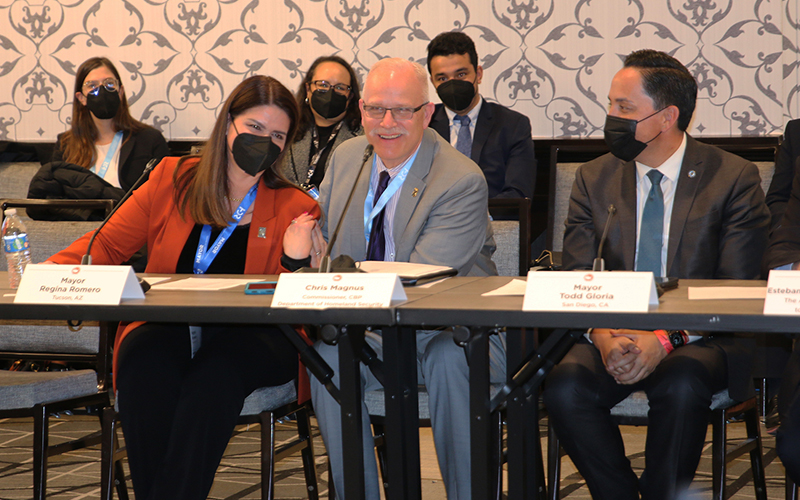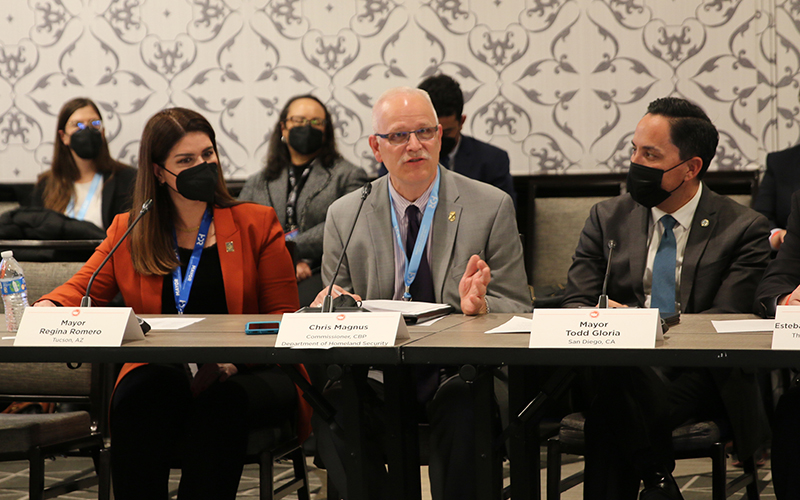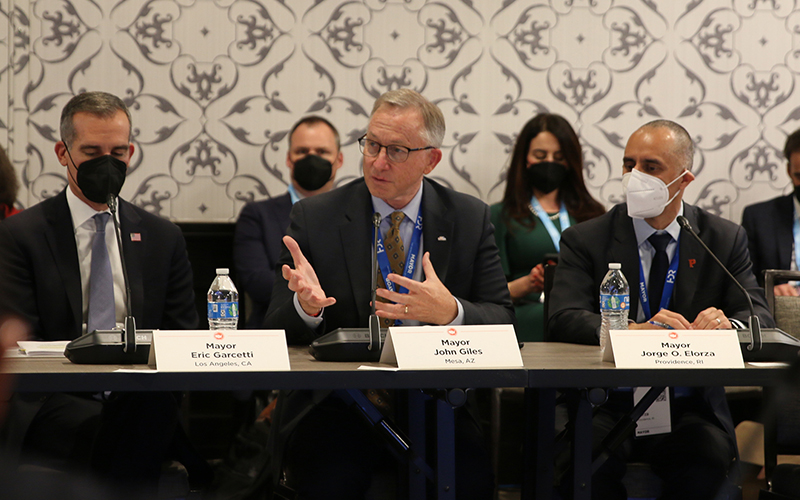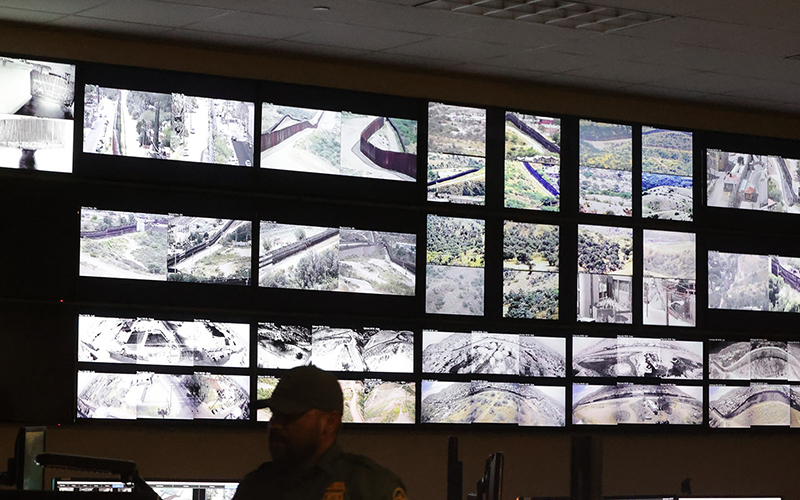WASHINGTON – Mayors of Tucson and Mesa agreed Wednesday that immigration reform is badly needed to address the current situation at the border, but they are not confident it can get done in the current fractured political climate.
The comments from Tucson Mayor Regina Romero, a Democrat, and Mesa Mayor John Giles, a Republican, who took part in an immigration forum at the U.S. Conference of Mayors meeting in Washington.
“It’s been 30-plus years since we’ve had meaningful legislation related to immigration reform,” Giles said after the session. “We’re hopeful that the people will put partisan politics aside and address this like a bipartisan issue.”
But he and Romero both acknowledged that the climate in Washington will most likely stifle any chance for change.
“I think the major issue facing immigration policy is that it’s not based on facts, the conversation in our country is polarized,” Romero said.
The meeting comes as the number of migrants at the southern border continues to surge, after hitting an all-time high of 1.7 million encounters with immigrants in fiscal 2021, according to Customs and Border Protection data. The numbers have fallen slightly since July, but still stood at more than 338,000 in October and November, the first two months of fiscal 2022, and the latest data available from CBP.
CBP Commissioner Chris Magnus – who until last month was Tucson’s chief of police – told the panel that his agency is struggling to keep pace with the challenges, which include handling asylum-seekers and immigrants, trying to keep trade flowing through ports of entry and fighting a surge in illicit drug trafficking. He said CBP intercepted 1,000 pounds of fentanyl at the border in fiscal 2021, “really a massive increase of what we saw in 2019.”
Magnus said current resources at the border are stretched thin and workers are inundated.
“It’s a frequently changing legal landscape that requires our personnel to take on additional responsibilities or new skills, interact with larger numbers of people, and frankly have to adjust to increasingly complex expectations,” Magnus said.
The agency is still operating under two Trump-era policies: Title 42, a health-safety measure that allows officers to turn migrants back at the border in response to the COVID-19 pandemic, and the Migrant Protection Protocols, also known as the “remain in Mexico” policy. Under that policy, border agents will accept asylum requests from migrants who present themselves at the border, but they are required to go back to Mexico and await a hearing date in U.S. courts.
Critics say both policies expose immigrants to disease, crime and violence in the makeshift camps that have sprung up south of the border.
Despite that, the Biden administration has extended the Title 42 restrictions, tweaking them only to exempt unaccompanied children. It tried to do away with MPP, but courts subsequently ordered the program reinstated, saying Homeland Security Alejandro Mayorkas has not followed proper procedures to end the program. DHS grudgingly reinstated MPP, even as Mayorkas announced new plans to do away with it.
Magnus said his agency is “realistic about the impact of Title 42 going away at some point. We’re working really for a whole-government approach to achieve a safe and orderly process.”
He said state and local agencies as well as federal departments need to be part of the solution.
“I know it’s easy to say we’re seeking an equal partnership but I’m really committed to doing this so that actions speak louder than words,” Magnus said.
That was echoed by Mexican Ambassador Esteban Moctezuma Barragán, who said the U.S. and Mexico will need to work together to address the root of the migration problem.
“Migration is one of the greatest issues that lies at the core of the U.S. and Mexico’s shared priorities,” he told the mayors. “We really need each other.”
Despite the partisan gridlock in Washington, both Giles and Romero credited the Biden administration with trying to reform border policy. But they said advocates must continue to fight.
“I’m happy that the Biden administration is listening to border communities like Tucson and Nogales,” Romero said. “We just have to keep fighting and making sure that we can get some movement on immigration policies with the House, the Senate and President Biden.”
Giles said a conversation on immigration reform is “long overdue.” But given the current relations between the House, the Senate and the White House, the chance of such a conversation are slim.
“We’re all very hopeful that there will be some comprehensive immigration reform that makes it through Congress this year, but right now it’s not looking great,” he said. “It’s like a lot of other issues, it’s subject to the same impediments that is holding back a lot of the other parts of President Biden’s agenda.”





